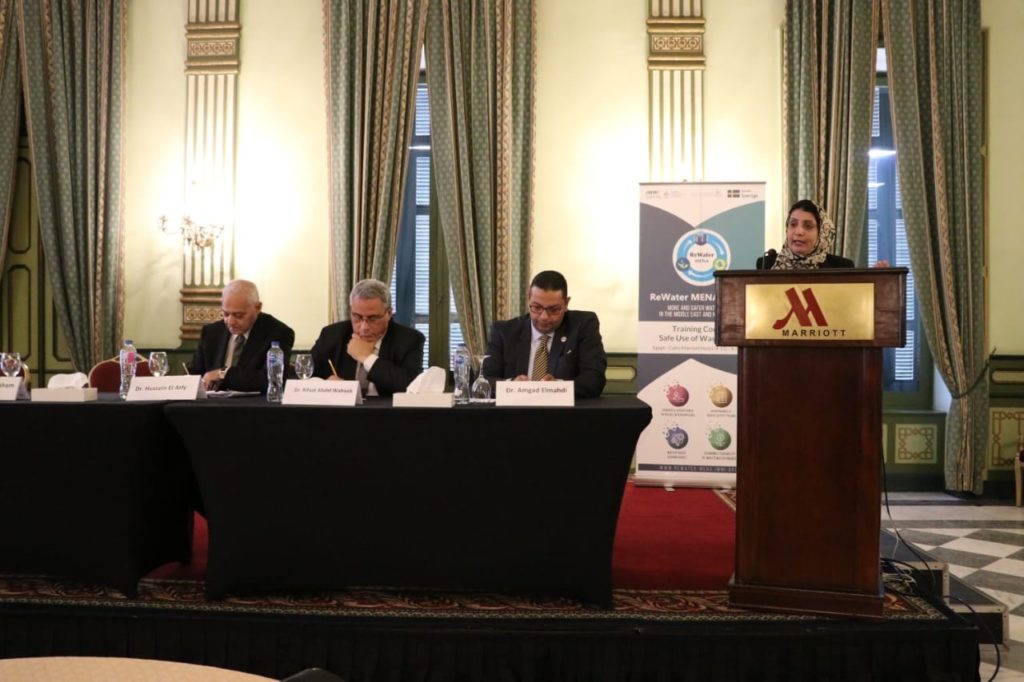Workshop of wastewater safe use concludes in Egypt on Sunday

The Safe use of Wastewater workshop in Egypt, organised by the International Water management Institute (IWMI) – ReWater MENA project, will be wrapped up on Sunday with a closing ceremony to be held later in the day.
The workshop, organised in collaboration with Arab Countries Water Utilities Association (ACWUA), is pushing for building and strengthening the capacities of different stakeholders and participants from Egypt in the field of safe use of wastewater. This is all built on four training modules.
The modules include: Stakeholders’ acceptance and gender integration in reuse interventions, assessing the Economic Feasibility for Integrated Wastewater Reuse (WWR) Projects: From formulation to reporting, governance and reuse safety Plans, as well as water reuse technologies.
The workshop ends today and delivers certificates of completion to all participants who attended the workshop and completed the four modules.
ReWater MENA project - running in Egypt, Jordan and Lebanon - is a regional project funded by the Swedish International Development Cooperation Agency (SIDA), and led by the International Water Management Institute (IWMI).
During the workshop, Rifaat Abdel-Wahaab, Head of the Research and Development Sector at the Holding Company for Water and Wastewater (HCWW), said that the biggest challenge for indirect reuse in the Delta has been the mixed sources of waste streams that are discharged untreated into agricultural drains.
He also mentioned that Egypt's government plan is to treat and reuse drainage water on a large scale.
Wastewater presents a great potential for bridging the supply-demand gap as it is the only water source which increases as the population grows, as mentioned by Amgad El-Mahdi, Head of IWMI MENA Office.
He refers to wastewater as an untapped resource. Thus, the use of treated wastewater (TWW) in agriculture is considered one of the most sustainable alternatives to cope with water scarcity, especially considering that agriculture accounts for 80 percent of the region’s freshwater withdrawals.
He said that there are many challenges facing the use of treated wastewater in the Arab region, including social, institutional, economic and cultural challenges.
He assured the need to deal with these challenges by developing plans and a road map for the three countries participating in the ReWater MENA project, namely Egypt, Jordan and Lebanon.
Hussein El-Atfy, Secretary-General of Arab Water Council (AWC), indicated that wastewater is the only sustainable water resource and it would be one of the main pillars to overcome water scarcity challenges.
Khaldon Khashman, the Secretary-General of ACWUA, emphasised in a video message the importance of the fields covered by the training course and that this is the first time in the Arab region that such a scheme is launched.
He also mentioned that the Arab region lacks wastewater reuse safety plans that deal with all aspects starting from the water coming out of homes through the water collection and purification system, throughout its safe use and up until the impact on water users.
This article was originally published on https://english.ahram.org.eg
